Why St. Petersburg was once called Leningrad and other names
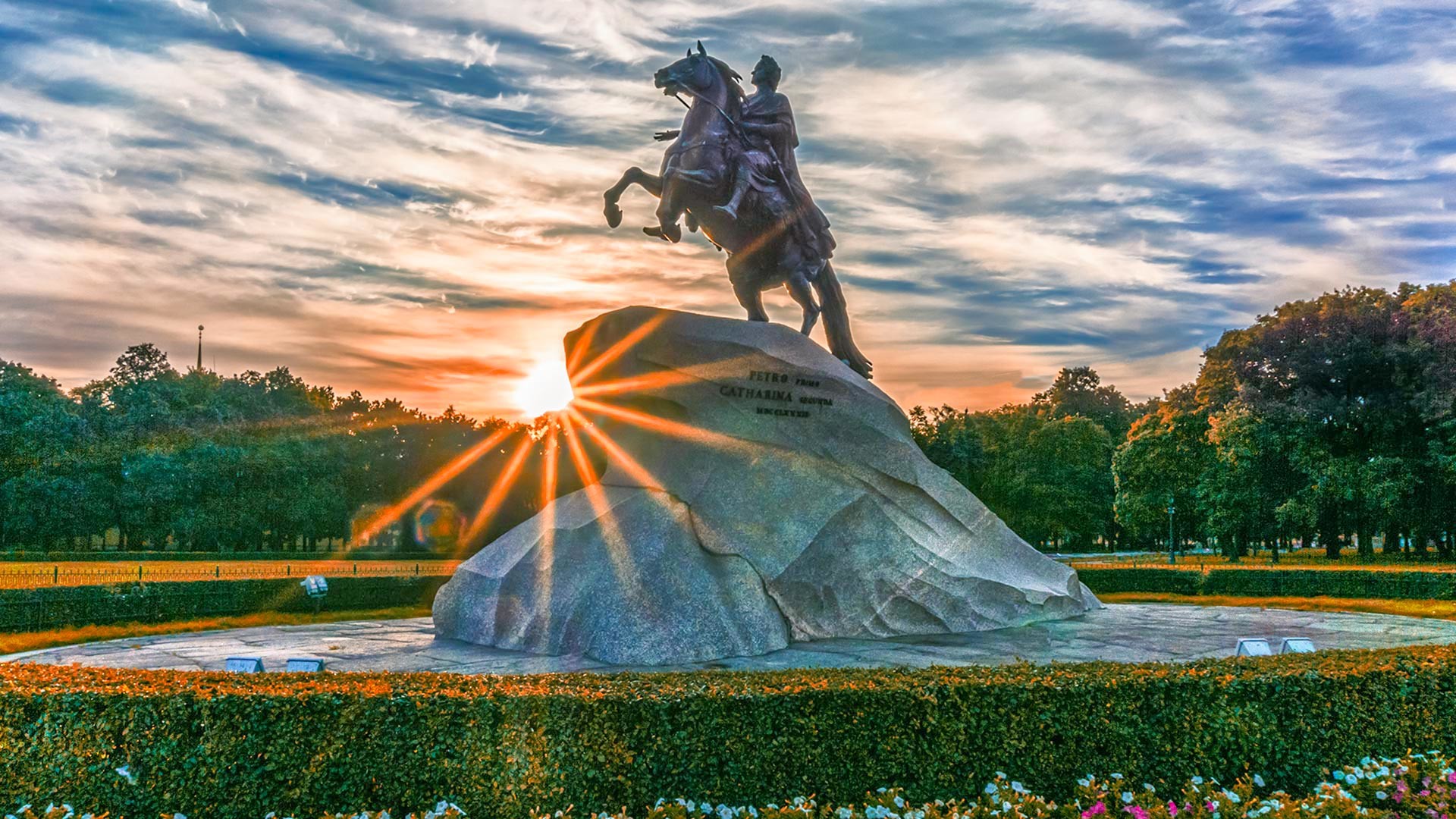
Piter, the City on the Neva, the Northern Capital, the Cultural Capital, Venice on the Neva, the Northern Palmyra, the City of Three Revolutions… St. Petersburg has many nicknames that reflect its grand features despite a relatively young age, just a little more than 300 years. Founded in 1703, the city has had several official names throughout its history.
The city of Saint Peter
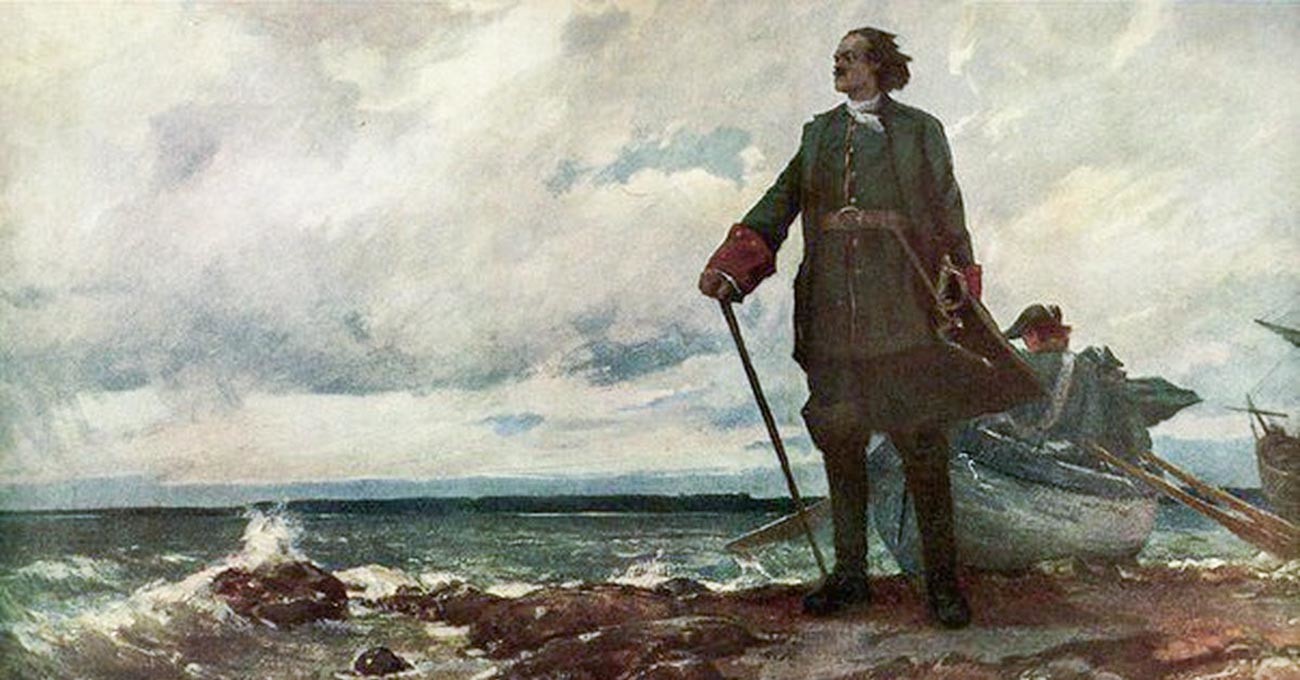
Peter the Great was the first Russian ruler to appreciate Europe and its progress, and so he traveled across England, The Netherlands, Austria and other countries. There, he saw and learned ship building and naval science, as well as the customs and dress of the royal courts.
Founding his new capital on a swamp in the delta of the Neva River in the Russian North, Peter wanted to get closer to his Swedish neighbors - and to Europe as a whole. In his famous poem "The Bronze Horseman" poet Alexander Pushkin writes that the Emperor wanted to open ‘the gate to Europe’ and gain access to the Baltic Sea.
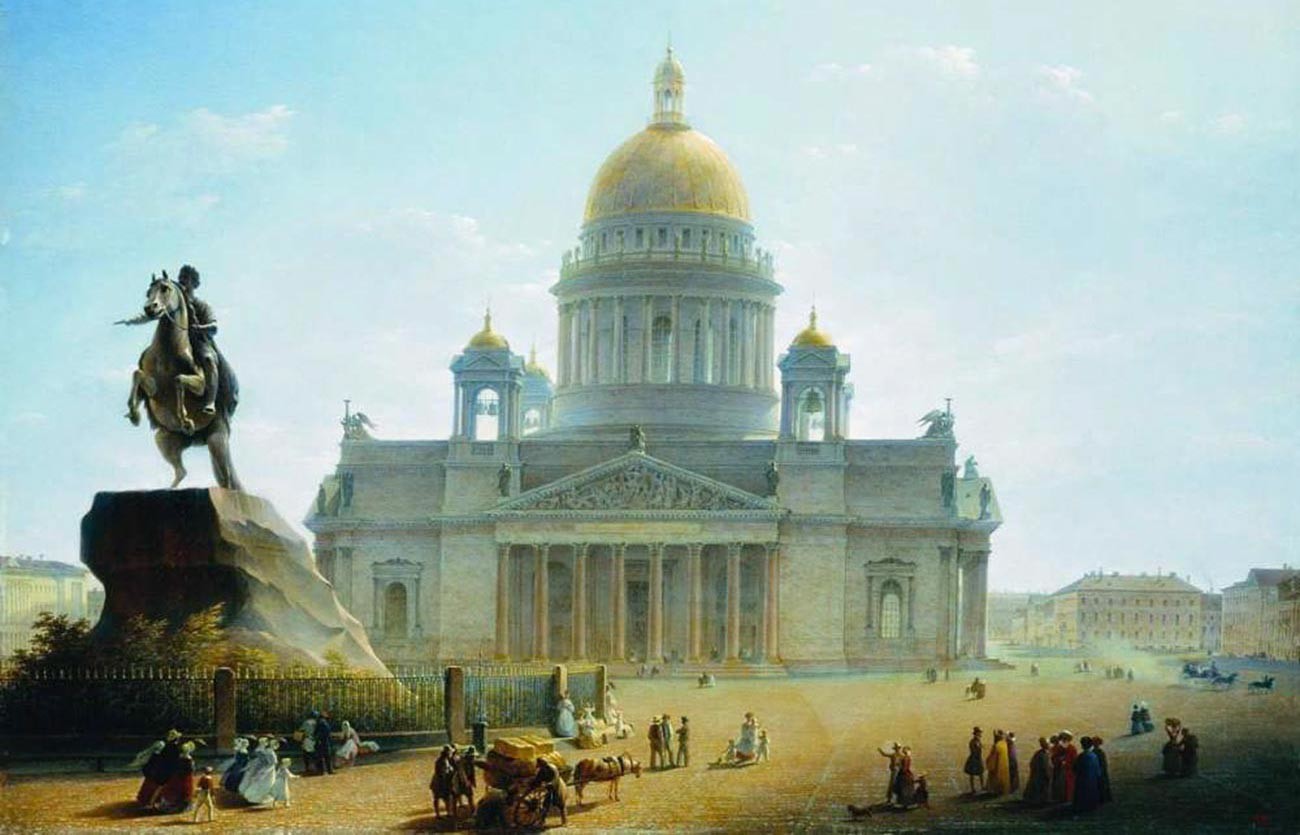 Maxim Vorobiev. St. Isaac’s Cathedral and Monument to Peter the Great, 1844
Maxim Vorobiev. St. Isaac’s Cathedral and Monument to Peter the Great, 1844
To take his claim further, Peter gave the city one of the most ‘European’ names possible. The title honors Saint Peter the Apostle, which the Emperor considered as his own heavenly patron. As Peter the Great was a fan of the Netherlands, he firstly named the city ‘Sankt Pieter Burkh’ in the Dutch manner. Since those times, people got used to shortening it as Pieter (Piter) and which still is the most popular nickname for the city.
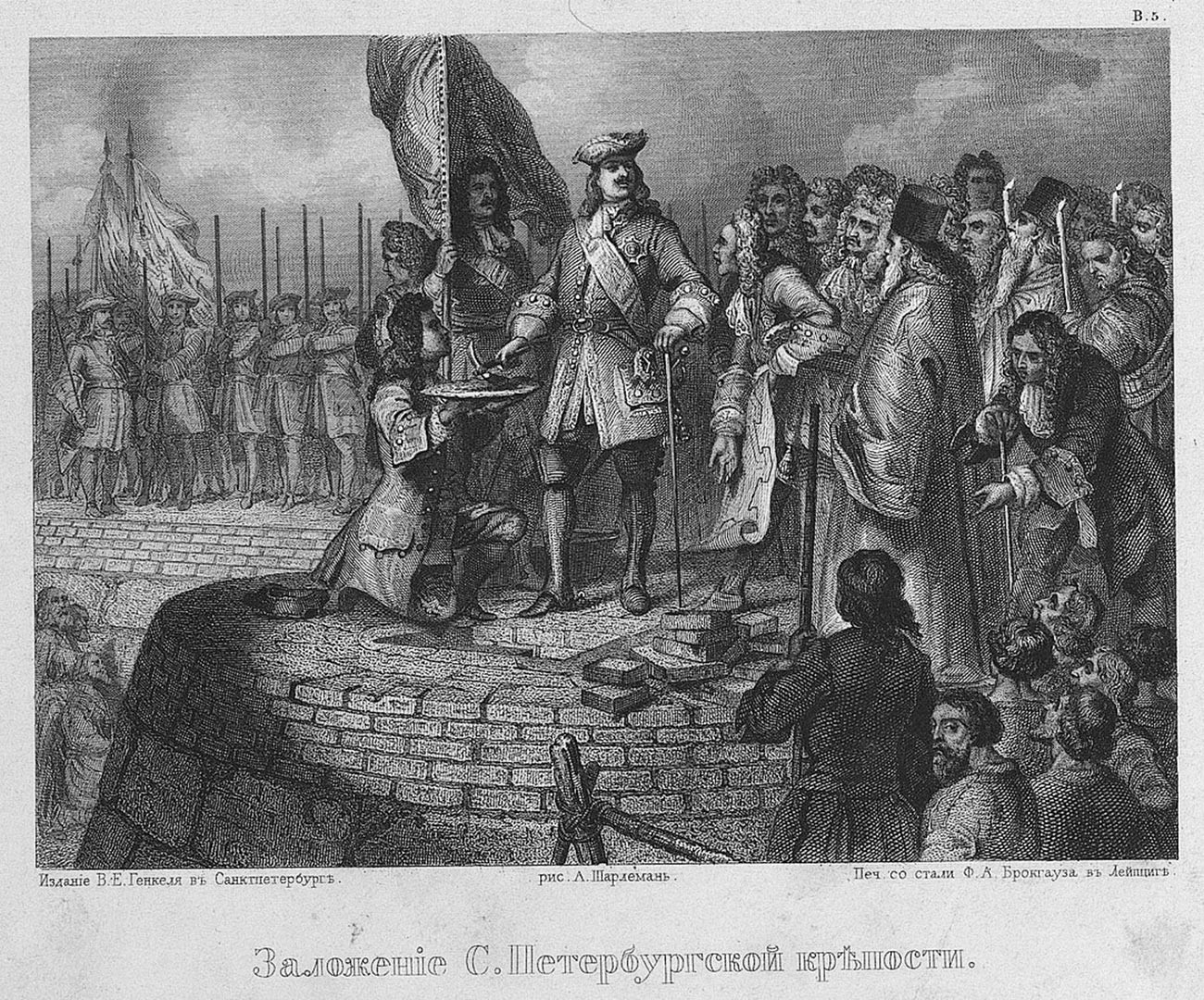 The foundation of the Peter and Paul fortress
The foundation of the Peter and Paul fortress
In 1724, however, the official newspaper, Vedomosti, began to refer to the city as Sankt-Peterburg, which was more familiar for the many Germans who lived and built the city, and who served in Peter’s court.
The city quickly became associated with its founder, rather than Saint Peter. Pushkin called it in various poems, “Peter’s great creation”, and “Peter’s city”.
A turn to Russianness
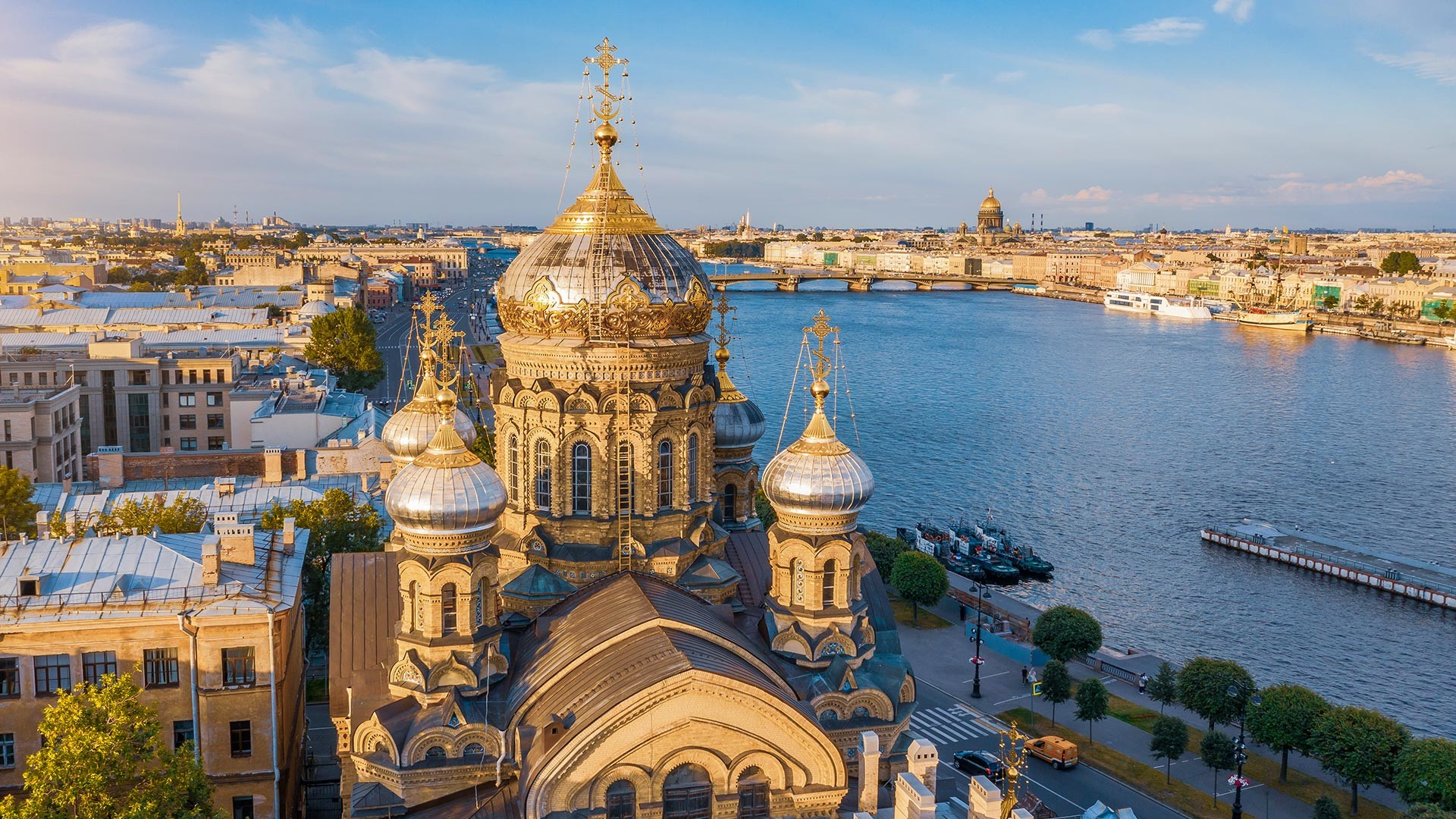 The Assumption Church on the embankment of the Neva River
The Assumption Church on the embankment of the Neva River
Two centuries later, the city changed its name for the first time. In 1914, Russia entered the First World War, and Germany was its main enemy. Emperor Nicholas II decided to get rid of the city’s ‘German’ name and ordered it to be renamed ‘Petrograd’, which still literally meant ‘the City of Peter’, but in a Russian form. “Grad” is an ancient Russian definition of “gorod”; literally ‘the city’. This was a very common name for ancient Russian cities such as ‘Novgorod’.
A revolutionary city
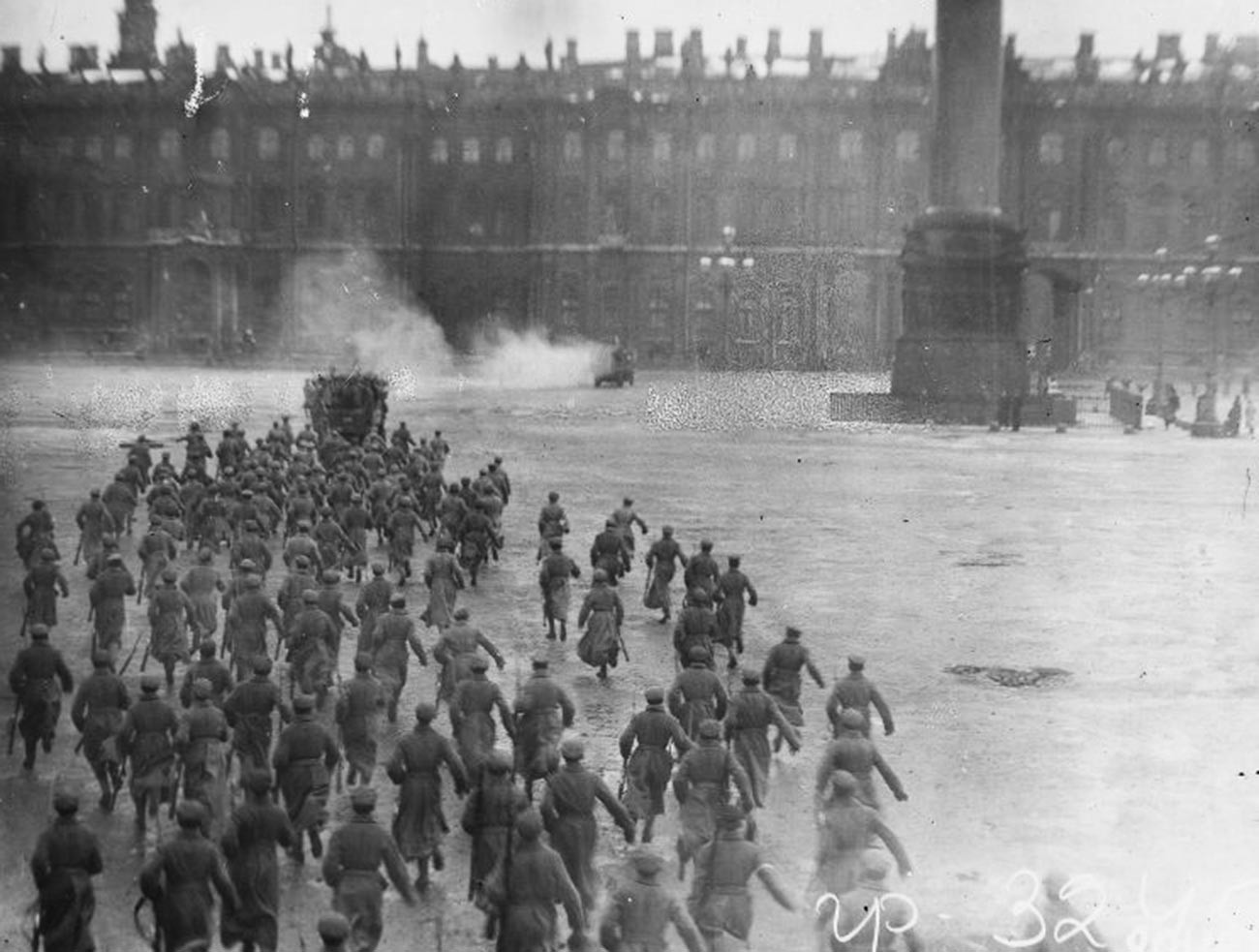 The Storming of the Winter Palace. A still from the movie 'October: Ten Days That Shook the World' by Sergei Eisenstein
The Storming of the Winter Palace. A still from the movie 'October: Ten Days That Shook the World' by Sergei Eisenstein
The locals still weren’t used to the new name when 10 years later it was changed again! The city was the cradle for the Bolshevik Revolution, but during the Civil War it lost its status of the capital because the government decided to move to Moscow.
In 1924, five days after the death of the Soviet leader, Vladimir Lenin, the Petrograd City Council proposed to change the name of the city to Leningrad. The issue was discussed at the Second All-Union Congress of Soviets… which predictably ratified the change.
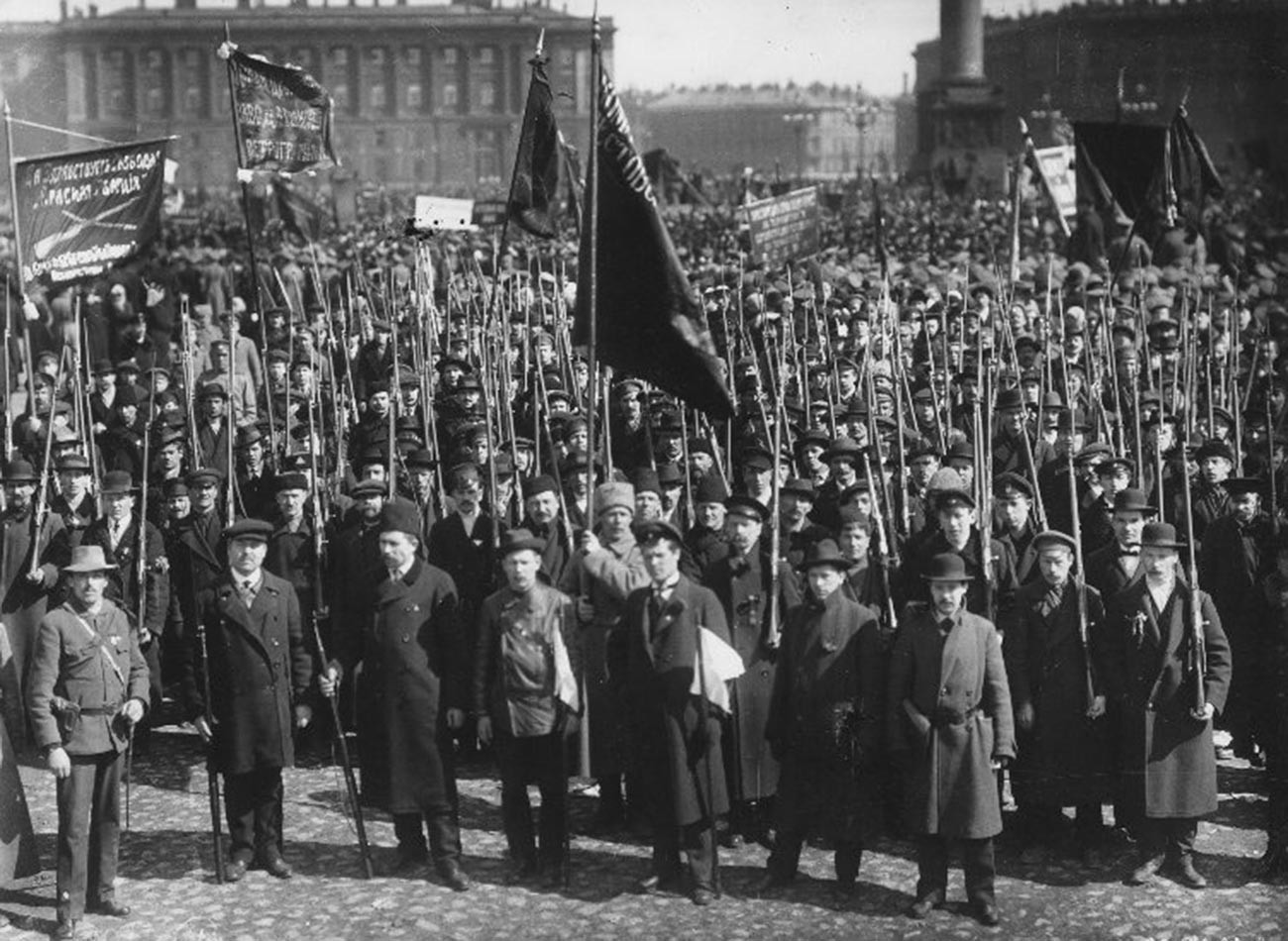 Rallies on the Palace Square
Rallies on the Palace Square
During the 70 years of Soviets rule, everyone in and outside Russia was used to calling it Leningrad. For example, the Nazi blockade of the city during World War II is called “The Siege of Leningrad”, but never “The Siege of Petersburg”.
Leningrad poets wrote many poems dedicated to their city and the courage of its citizens. On the day when the Siege was lifted the famous poet Anna Akhmatova wrote:
On a starless January night.
Overwhelmed by its incredible fate.
Pulled back from the depths of death
Leningrad salutes itself.
Starting in 1924 the name of the revolutionary leader appeared everywhere in the USSR, and since then every Russian city and town has either a street or a square named after Lenin. Moscow has both a prospect named after Lenin, and a prospect named after Leningrad! It’s a nightmare for inexperienced drivers.
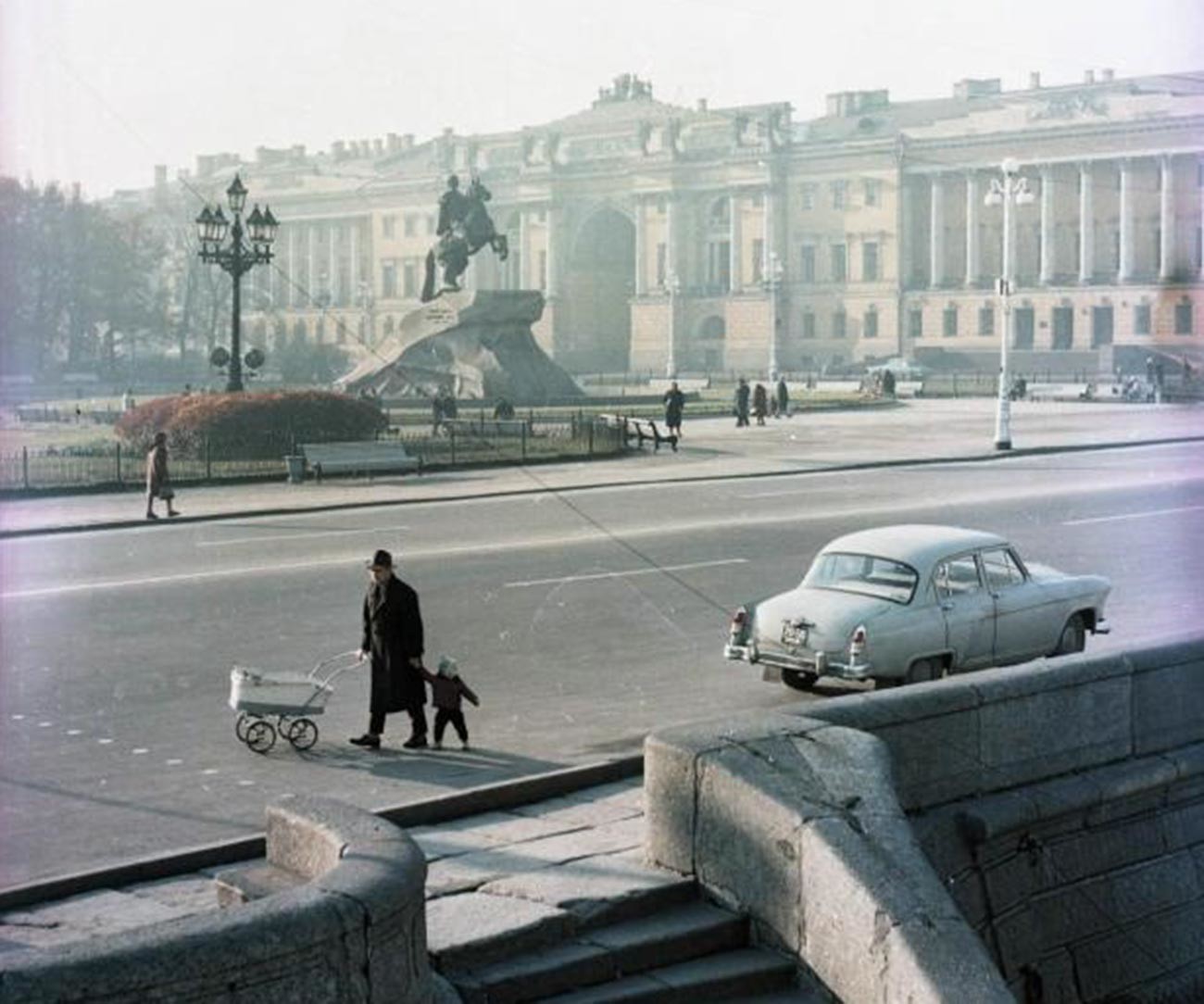 The Bronze Horseman monument, Soviet times
The Bronze Horseman monument, Soviet times
The Soviet authorities loved to name the cities after famous Bolsheviks: Kaliningrad, Stalingrad, Dimitrovgrad and many titles like this appeared throughout the 20th century. Some were changed in the 1990s, but many remained.
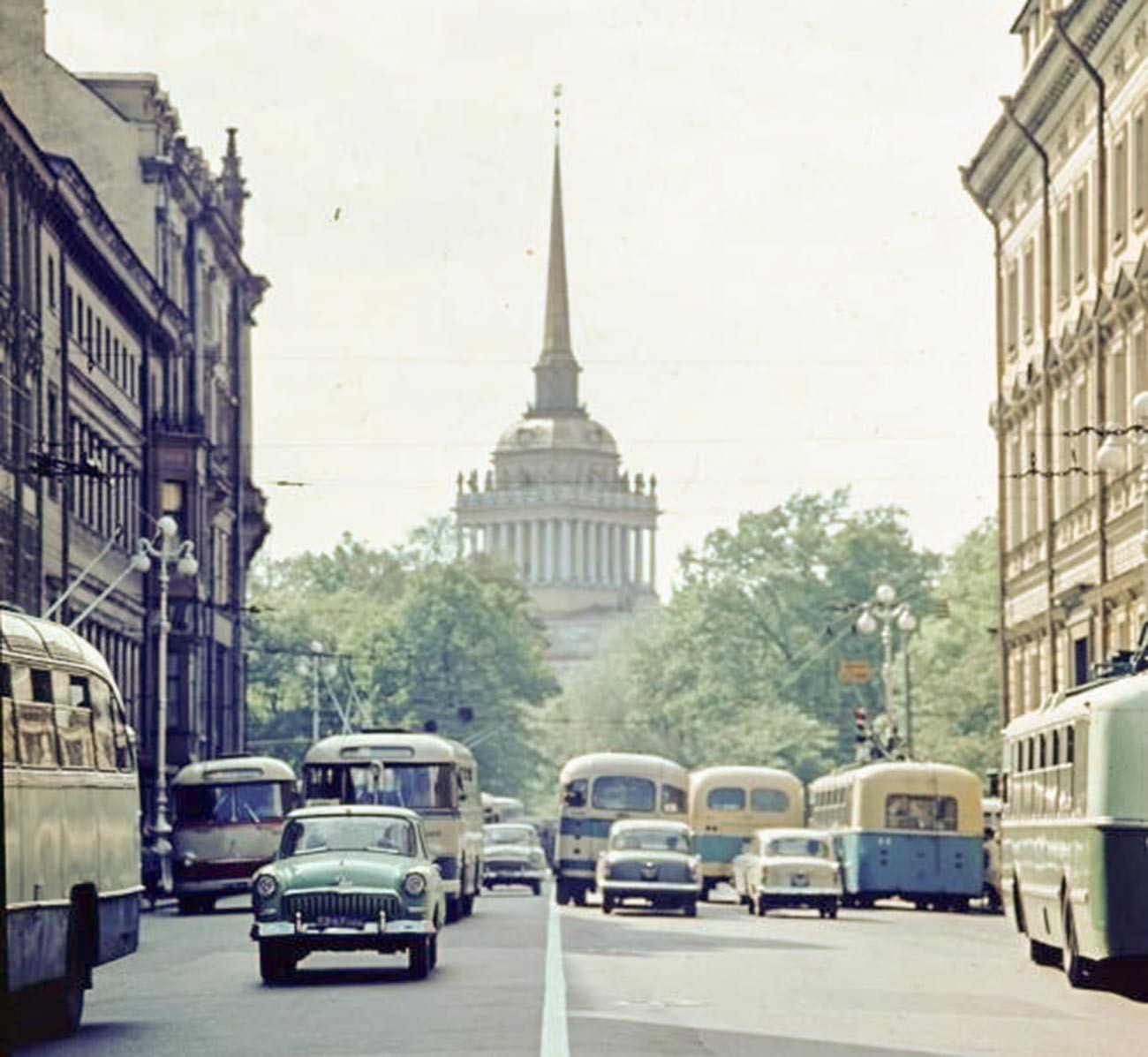 Leningrad, Nevsky prospekt
Leningrad, Nevsky prospekt
Back to the roots
In 1991, after the Soviet Union collapsed, it was quite a logical and symbolic step to change the city’s name. Local authorities held a public poll, and more than half of citizens supported the initiative to return the historical name, St. Petersburg.
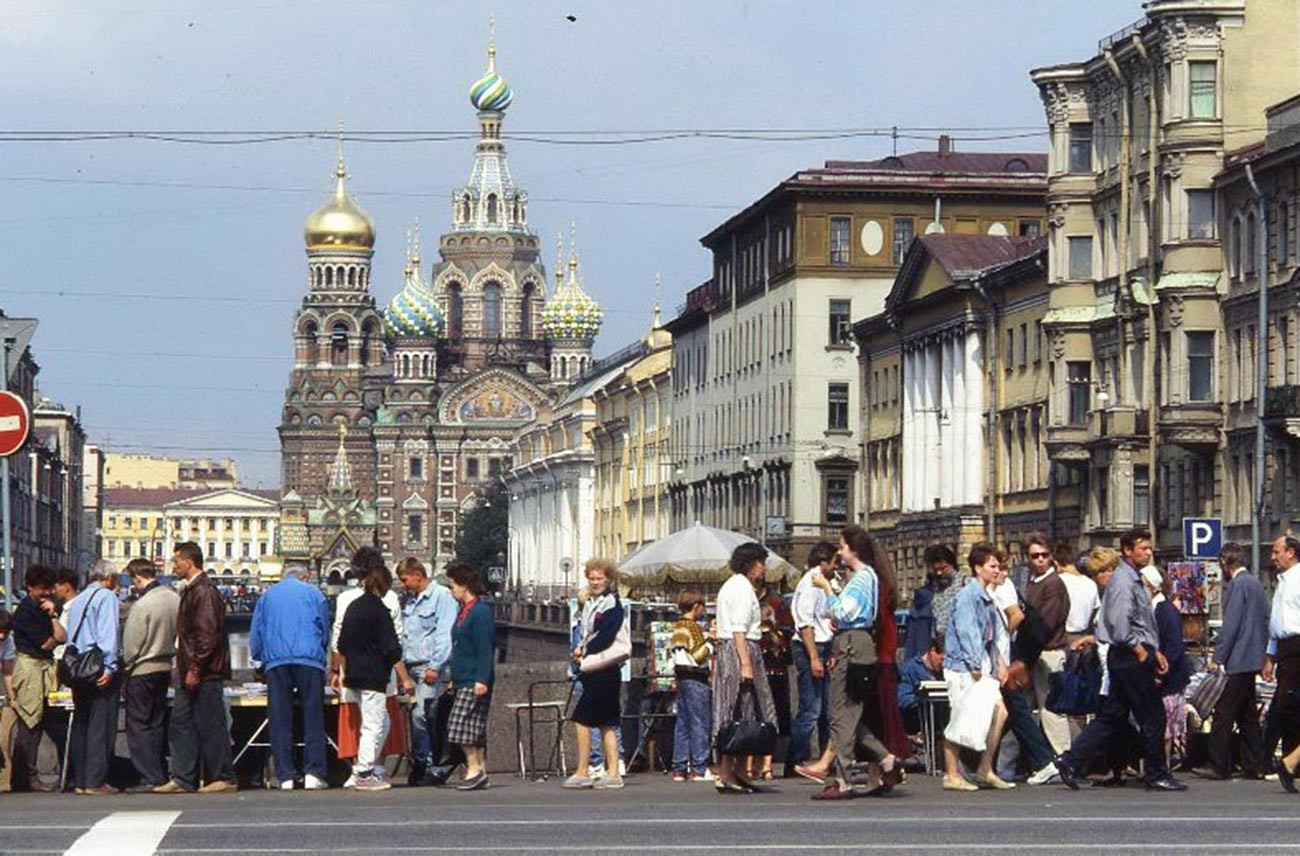 Pedestrians in front of the Church of the Savior on Blood, 1993
Pedestrians in front of the Church of the Savior on Blood, 1993
At the same time, the titles of many organizations retained ‘Leningrad’ for a while, and the area around St. Petersburg is still called ‘Leningrad Region’, because the locals eventually voted not to change it (most probably to avoid the bureaucratic problems of changing official documents). Many people of the older generation still sometimes call the city Leningrad, just out of habit.
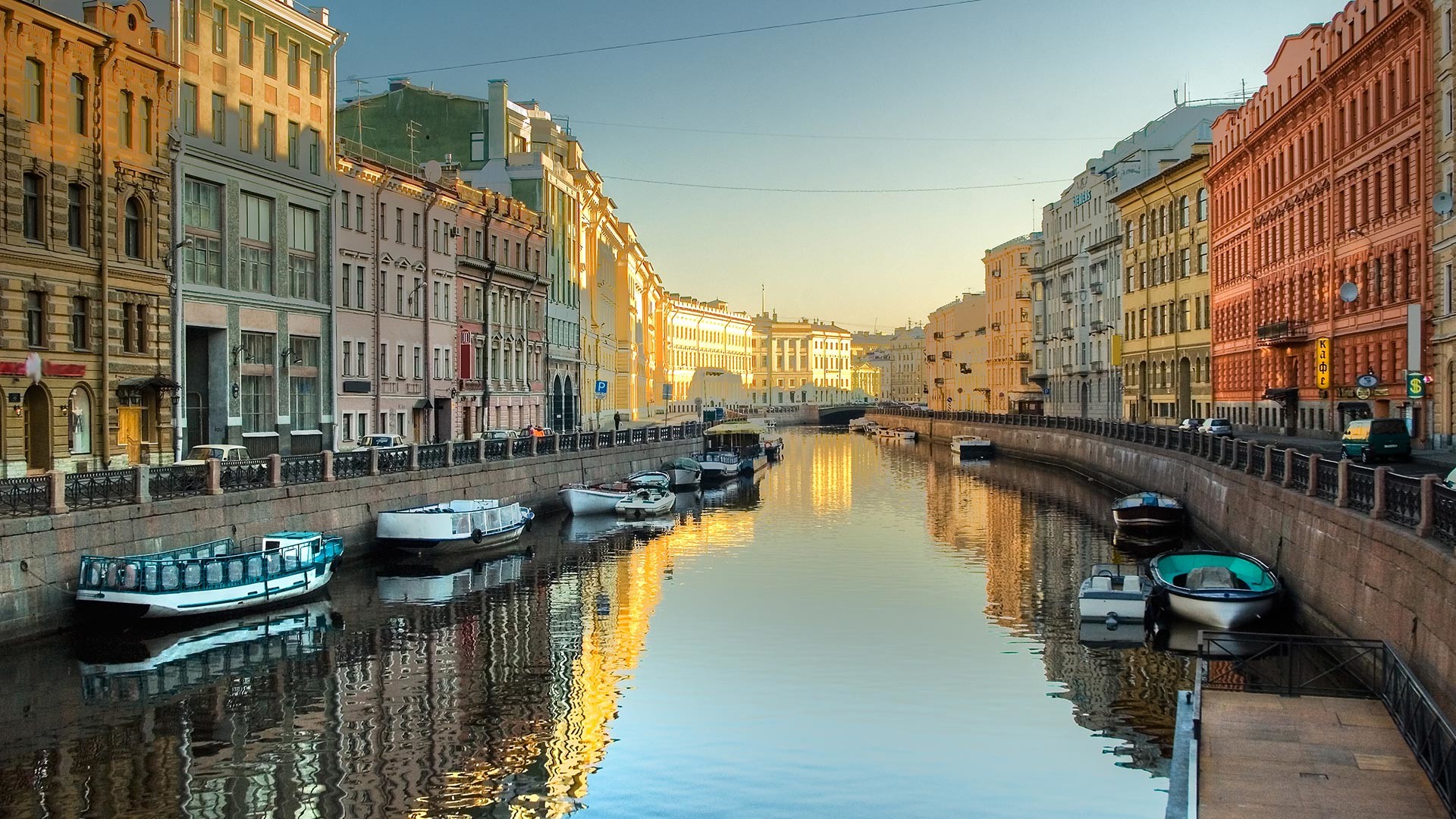 Moyka river in St.Petersburg
Moyka river in St.Petersburg
One of the most popular Russian pop-rock bands originating from the city is called – you got it – Leningrad. In one of its most famous songs the frontman, Sergey Shnurov, sings that he probably was drunk, because he didn’t remember when he ‘had moved’ to St. Petersburg. “Today my address is www Leningradspb dot RU”, he sings, mixing the Soviet past with the Russian present – and advertising their own website (it hasn’t been updated since 2002, though).


